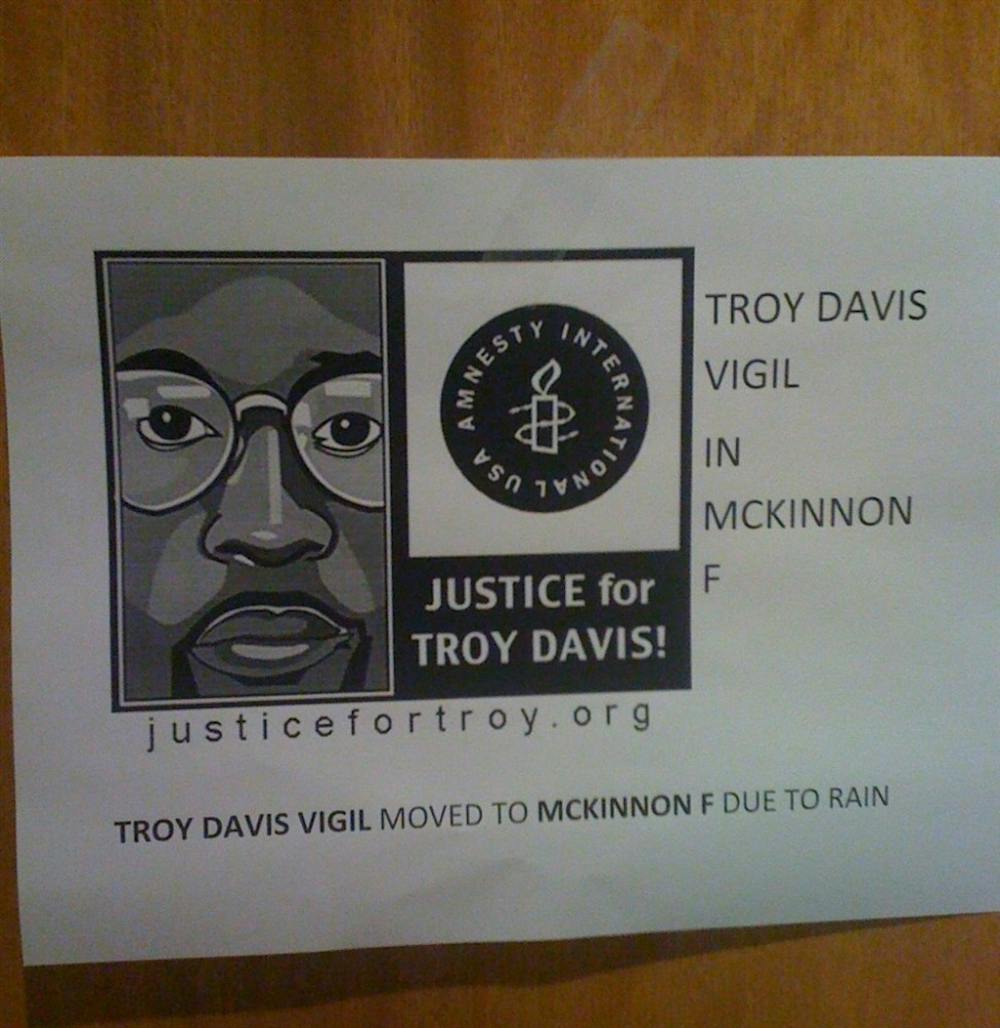A group of 30 students joined hundreds of others protesting the planned execution of Troy Davis Wednesday, Sept. 21. The Atlanta man was scheduled for lethal injection at 7 p.m. for the decades-old murder of police officer Mark MacPhail.
According to a report from The New York Times, a last-ditch appeal to the Supreme Court had stalled the execution and as of 9:45 p.m., Davis and his supporters, were waiting for the court's final decision.
By about 10:30 p.m., numerous media outlets reported that the Supreme Court rejected his plea for a last-minute block and the execution would proceed that evening. He was pronounced dead at 11:08 p.m. according to a broadcast on CNN.
A branch of Amnesty International at Elon University planned the evening vigil in Moseley, which included a discussion of the history of the case. Davis was originally convicted in 1991 and has faced a total of four execution dates since, including Sept. 21.
More than 63,000 people submitted letters to the Georgia State Board of Pardons and Paroles, according to the Times report. Numerous other influential leaders called to clemency for Davis, including former president Jimmy Carter, Archbishop Desmond Tutu, 51 members of Congress and former FBI director William Sessions, a death penalty supporter.
Of the nine eyewitnesses that originally tied Davis to the crime, seven have since recanted or changed their statements, claiming the police coerced them.
The case highlights the problem with both the death penalty and the overall justice system in the United States, according to junior Rachel Stanley, a co-coordinator for Amnesty International.
"You can never be certain and you can't reverse murder," she said. "The death penalty is not a deterrent of violent crimes. There are questions of guilt and innocence before and after."
Amnesty is working to abolish the death penalty worldwide, Stanley said.
"Many (people) have been exonerated after the death penalty but that's not good enough," she said. "That's not good enough for them, for their family, for their friends and people who care about this."
As the 7 p.m. deadline drew near, Stanley maintained the hope that the execution would be stayed, describing Davis as a man with immense faith who had come to terms with his future.
"'They can take my body but not my spirit because I have given (it) to God,'" a participant read from one of Davis' letters.
Participants also held a moment of silence and read statements aloud from witnesses now retracting their previous testimonies tying Davis to the crime.
Some claimed to have been coerced into identifying Davis as the suspect and signing statements without actually reading them, according to the statements. Others came forth with the assertion that someone else had confessed to committing the crime.
Participants expressed concern about the right for one human to decide who can live or die.
"It's not different from hangings in Medieval Europe," one attendee said. "What progress have we made?"
The group continued to monitor online updates as the evening progressed.
"No matter what happens, it doesn't end here," Stanley said. "While Troy's life may end tonight, the struggle will go on tomorrow."


